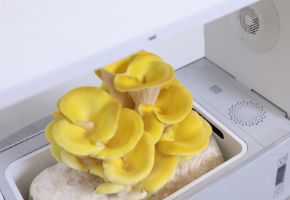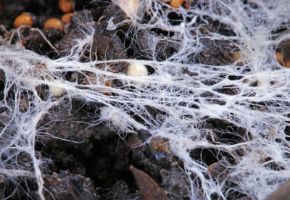An in-depth journey into the world of medicinal mushrooms and their role in supporting women's health through all stages of life, with particular attention to scientific evidence and practical applications to support women's well-being.
For millennia, diverse cultures around the world have recognized the therapeutic value of mushrooms, using them to treat a wide range of conditions. Today, modern science is finally confirming many of these traditional knowledge, discovering increasingly sophisticated mechanisms of action through which medicinal mushrooms can positively influence our health. In this article, we will explore in depth how specific mushrooms can offer support for women's health during different life stages, from adolescence to menopause and beyond, analyzing scientific data, statistics, and providing practical guidance for informed use. The medicinal use of mushrooms has its roots in ancient cultures such as China, where Reishi (Ganoderma lucidum) was known as "the mushroom of immortality," and Mesoamerica, where psilocybin mushrooms were used in ritual contexts. Traditional Chinese Medicine classified mushrooms based on their energetic properties and their effects on organs, a system that still influences their application today. In Europe, although the medicinal use of mushrooms has been less systematic, historical documents attest to the use of species such as Chaga (Inonotus obliquus) in Slavic folk medicine and Porcini (Boletus edulis) as a general tonic. Only in recent decades has the Western scientific community begun to systematically study the medicinal properties of mushrooms, identifying bioactive compounds such as beta-glucans, triterpenes, and lectins, which explain many of their beneficial effects. Research has particularly focused on their immunomodulatory, anti-inflammatory, and adaptogenic properties, opening new perspectives for their use in chronic and age-related conditions, aspects particularly relevant to women's health. Adolescence represents a period of profound physical and emotional transformations for young women, characterized by significant hormonal changes and the maturation of the immune system. At this stage, medicinal mushrooms can offer valuable support, helping to modulate the immune response, support hormonal balance, and provide essential nutrients for development. Maitake, known as the "dancing mushroom" for its characteristic shape resembling the folds of a moving skirt, is particularly interesting for its potential hormone-modulating properties. Recent studies have shown that the beta-glucans present in Maitake can positively influence insulin sensitivity, a crucial factor in Polycystic Ovary Syndrome (PCOS), a condition that affects up to 10-15% of women of reproductive age and often manifests during adolescence. PCOS is characterized by hormonal imbalances, irregular menstrual cycles, and possible insulin resistance, conditions that Maitake might help manage through complex mechanisms involving both the endocrine and immune systems. A clinical study published in the Journal of Alternative and Complementary Medicine examined the effects of Maitake extract on women with PCOS, finding an ovulation rate of 76.9% in the group treated with Maitake compared to 93.5% in the group treated with clomiphene, the conventional drug. Although the drug showed superior efficacy, Maitake presented a significantly more favorable side effect profile, making it an interesting option for young women seeking more natural approaches. Further research is needed to fully understand the mechanisms of action, but preliminary data suggest that Maitake compounds may influence enzymatic activity involved in the synthesis of steroid hormones. Reishi, nicknamed "the mushroom of immortality" in Traditional Chinese Medicine, is known for its adaptogenic properties, which make it particularly useful during adolescence, a period often characterized by high levels of stress related to school, social relationships, and identity formation. Adaptogens are natural substances that help the body adapt to stress and normalize physiological functions, and Reishi is considered one of the most potent adaptogens in the fungal kingdom. Its effects appear to be mediated through modulation of the hypothalamic-pituitary-adrenal (HPA) axis, the central system in the stress response, and through influence on brain neurotransmitters. For adolescents facing periods of intense stress, such as during exams, preparing a smoothie that combines the benefits of Reishi with other nutritious ingredients can be helpful. Here is a simple recipe: Blend all ingredients until smooth. This smoothie not only provides the adaptogenic compounds from Reishi but also magnesium from cocoa, which supports nervous function, and antioxidants from cinnamon. It is important to emphasize that the use of mushroom-based supplements in adolescents should always occur under medical supervision, especially in case of pre-existing conditions or medication use. During the reproductive years, women face specific challenges related to reproductive health, hormonal balance, and stress management in daily life. Medicinal mushrooms can offer targeted support in this phase, acting on multiple fronts: from modulating the immune system to supporting fertility, from regulating the menstrual cycle to protection against recurrent infections. Cordyceps, a parasitic fungus that grows on insect larvae at high altitudes, has been traditionally used to support energy and vitality. Recent research has highlighted its potential in improving female fertility, through mechanisms that include improving blood circulation to the reproductive organs, modulating hormone levels, and protecting ovarian cells from oxidative stress. An in vitro study published in the Journal of Ethnopharmacology demonstrated that Cordyceps can stimulate estrogen production in ovarian cells, suggesting a possible mechanism through which this mushroom could positively influence reproductive function. According to data from the Italian National Institute of Health (Istituto Superiore di Sanità), in Italy about 15% of couples encounter difficulties in conceiving, with female causes representing about 35-40% of cases. Although Cordyceps cannot resolve all causes of infertility, its potential to improve some reproductive parameters makes it an interesting complement to conventional approaches. It is important to emphasize that the use of Cordyceps in fertility contexts should always occur in consultation with a healthcare professional, especially in the case of concomitant drug therapies or specific medical conditions. Shiitake, one of the most studied medicinal mushrooms, is known for its immunomodulatory properties, mainly attributed to the compound lentinan, a beta-glucan with a particular structure. These properties could be useful in preventing urinary tract infections (UTIs), which affect women of reproductive age more frequently due to anatomical and hormonal factors. Statistics indicate that approximately 50-60% of women will experience at least one episode of UTI in their lifetime, with a significant subgroup developing recurrent infections. The lentinan present in Shiitake appears to enhance the activity of macrophages and Natural Killer cells, crucial components of the innate immune response against pathogens, including those responsible for UTIs. Scientific evidence, although in many areas still preliminary, suggests that medicinal mushrooms can represent a valid complement to conventional approaches for women's health at different life stages. Their multi-modal action, involving the immune system, hormonal balance, and stress response, makes them particularly suited to support the complex physiological needs of women. However, it is crucial to emphasize that the use of medicinal mushrooms should always be done consciously, preferably under the guidance of qualified professionals, and as an integration rather than a replacement for conventional medical care when necessary. When considering medicinal mushrooms as part of a health approach, it is important to pay attention to several practical aspects. Product quality is fundamental: standardized extracts of mushrooms cultivated in controlled environments generally offer greater assurance of purity and concentration of active principles compared to products of uncertain origin. Dosage should be personalized based on individual needs and life stage, generally starting with low doses to assess tolerability. Finally, consistency in use is often important, as many effects of medicinal mushrooms develop over time, through mechanisms of modulation rather than immediate action. The field of mycotherapy applied to women's health is rapidly evolving, with new research emerging regularly. Future directions include larger and more rigorous studies on the specific effects of different mushrooms on female conditions, research on synergies between different mushrooms and other medicinal plants, and investigations into the molecular mechanisms through which fungal compounds influence the female endocrine system. As scientific evidence increases, it is likely that medicinal mushrooms will assume an increasingly defined and recognized role in supporting women's health through all stages of life. This article is for informational purposes only and in no way substitutes for medical advice. BEFORE USING MUSHROOMS FOR THERAPEUTIC PURPOSES: ⚠️ Legal Note: The author declines all responsibility for misuse of the information. Results may vary from person to person. In case of emergency: Immediately contact the nearest Poison Control Center or call 118.Women: here's how mushrooms can support you through life's stages
Historical overview of mushroom use in traditional medicine
The modern rediscovery of medicinal mushrooms
Mushrooms in adolescence: support for hormonal health and the immune system
Maitake (Grifola frondosa) and hormonal balance in adolescents
Scientific data on Maitake and hormonal health
Reishi (Ganoderma lucidum) and stress management in adolescence
Practical recipe: Reishi smoothie for teens under exam stress
Medicinal mushrooms in the reproductive age: support for reproductive Health
Cordyceps sinensis and Female Fertility
Statistical Data on Female Fertility and Potential Applications of Cordyceps
Shiitake (Lentinula edodes) and Prevention of Urinary Tract Infections
Table: Comparison Between Conventional Approaches and Shiitake Supplementation for Recurrent UTIs
Approach Mechanism of Action Efficacy Considerations Prophylactic Antibiotics Direct bacterial elimination High short-term efficacy Risk of antibiotic resistance, side effects Shiitake Supplementation Immunomodulation, indirect antimicrobial activity Moderate efficacy, requires prolonged use Favorable safety profile, systemic effect Probiotics Competition with pathogens, microbiota modulation Variable efficacy Safe, additional benefits for gut health Conclusions: Integrating Medicinal Mushrooms into the Women's Health Journey
Practical Considerations for Using Medicinal Mushrooms
Future Perspectives of Research on Mushrooms and Women's Health
⚠️ WARNING
The fungal kingdom is a universe in constant evolution, with new scientific discoveries emerging every year about their extraordinary benefits for gut health and overall well-being. From today onwards, when you see a mushroom, you will no longer think only of its taste or appearance, but of all the therapeutic potential it holds within its fibers and bioactive compounds. ✉️ Stay Connected - Subscribe to our newsletter to receive the latest studies on: Nature offers us extraordinary tools to take care of our health. Mushrooms, with their unique balance between nutrition and medicine, represent a fascinating frontier that we are only beginning to explore. Continue to follow us to discover how these extraordinary organisms can transform your approach to well-being.Continue Your Journey into the World of Mushrooms










